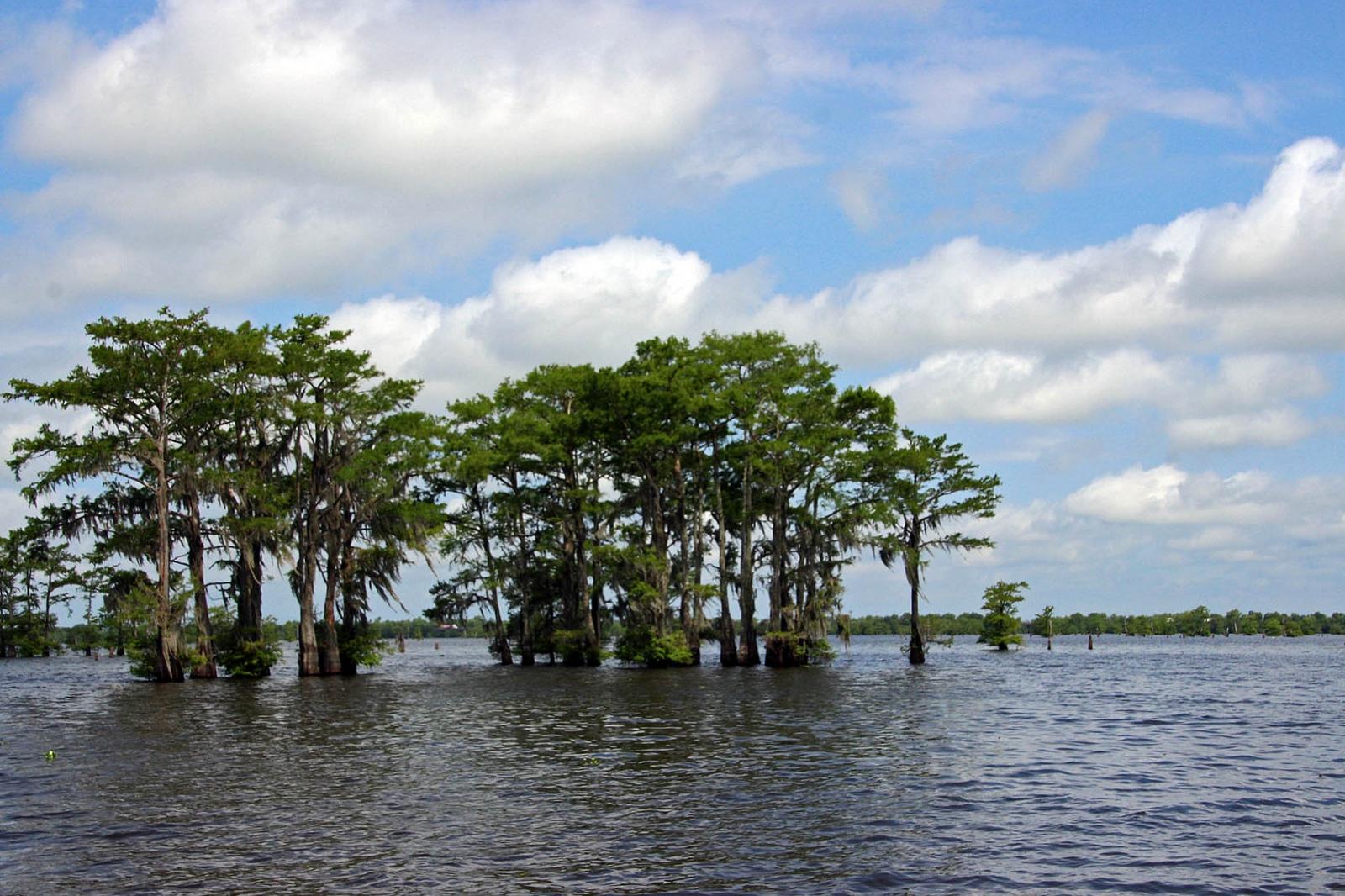Federal judge halts Louisiana pipeline
The region of Louisiana where the Bayou Bridge Pipeline is routed to pass through features cypress-tupelo swamps, lakes, bayous and migratory birds.
Editor's note: Between when this story was prepared and published, a judge overturned Judge Shelly Dick’s decision, allowing construction to resume. The story has been updated to reflect that.
A federal judge in Louisiana recently ordered a temporary stop to construction of the Bayou Bridge Pipeline, following a court challenge by several environmental groups.
Since the Trump administration gave the green light to the controversial Dakota Access Pipeline, Energy Transfer Partners has been pushing to complete the Bayou Bridge Pipeline, which will connect North Dakota crude to Gulf Coast refineries and export terminals.
The pipeline, which would cross an area called the Atchafalaya Basin, could devastate this enormous swampland and compromise Louisiana’s iconic crawfish harvest, says Anne Rolfes, founding director of the Louisiana Bucket Brigade, a local group that opposes the pipeline.
The Atchafalaya Basin is the largest river swamp in the United States — a mosaic of marsh and water, where ancient cypress and tupelo trees provide critical habitat for wildlife and migrating birds. In her ruling, US District Judge Shelly Dick agreed that “there is a risk to the Atchafalaya Basin serious enough to warrant Energy Transfer Partners halting construction of this pipeline,” Rolfes says. “She agreed with the plaintiffs that this pipeline could do irreparable harm.”
However, the 5th US Circuit Court of Appeals reversed Judge Dick's ruling to stop construction of the pipeline.
The Army Corps of Engineers gave the Bayou Bridge Pipeline its stamp of approval some months ago, but never conducted a full environmental impact statement, which factored into the judge’s ruling, Rolfes explains. “Drinking water is threatened in one area; black bear habitat is threatened in the basin; a historic African American community is threatened in St. James, Louisiana,” Rolfes says. “The Army Corps of Engineers, by refusing to conduct an Environmental Impact Statement, didn't acknowledge [these concerns].”
A broad coalition of groups opposes the Bayou Bridge project, says Rolfes: ordinary people whose land has been seized by Energy Partners to make way for construction; indigenous communities further down the route who are concerned about the impacts to their drinking water; and crawfishermen at the Atchafalaya Basin itself, who make their living from its waters.
“The problem with a pipeline like Bayou Bridge is that it acts as a dam and restricts water flow,” Rolfes explains. “The water dies, essentially, and then all of the living creatures within that water also die. In our case, the pipeline restricts water flow, and the crawfish die.”
In Louisiana, crawfish are a cultural linchpin, Rolfes says.
“Spring is the time of year when we eat crawfish,” she explains. “There are crawfish boils everywhere. You’ll go to a neighbor’s and there will be 20 pounds piled high on a table with boiled corn and potatoes. It is something that you will spend hours doing — just eating crawfish and drinking beer. And the thought that a pipeline company can come and kill that culture is a tragedy.”
Part of the 162-mile pipeline would sit directly in the water, which makes spills a serious ongoing concern — especially since locals see the impacts of previous leaks and spills all the time, Rolfes says.
“They kill the wildlife and they kill the natural world,” she says. “I was speaking with a crawfisherman at a [water protector] training and he said he can already see from past oil spills that our redfish population has gone down in areas and that our crabs have also died off. This has been a long assault on the state of Louisiana by the oil industry.”
The pipeline is being sold as a way of providing jobs and energy independence to the state, but Rolfes scoffs at this idea. On a recent trip along the pipeline route, she asked if any of the 20 or so workers she encountered were from Louisiana and not a single one of them was. “So, the fact that our governor and our elected officials are peddling this pipeline is laughable, because they're not even hiring people from our state,” she says.
Rolfes says “there is a lively resistance” in the region, made up of people who are willing to take action.
“Just yesterday, we were out on the pipeline route and we stood in front of backhoes,” she says. “We stopped their construction. Fifty of us yesterday stood in the way of a backhoe. That hasn't happened here before. The oil industry ought to be scared. They ought to realize that it's a different day and that they will have trouble on their hands.”
Bayou Bridge Pipeline LLC issued the following statement in response to the initial ruling by Judge Shelly Dick:
"Bayou Bridge Pipeline respectfully disagrees with the District Court’s ruling that the Army Corps of Engineers did not properly consider the limited impacts of construction in the Atchafalaya Basin during the extensive NEPA (National Environmental Policy Act) process the Corps conducted. In fact, the Corps issued two comprehensive environmental assessments, both of which had a “Finding of No Significant Impact” to the Basin. We intend to seek immediate relief from this decision in the appropriate courts. Beyond that, we will decline to comment on the legal process, but instead defer to our filings. It is important to clarify that construction of this important infrastructure project continues in all other areas along the route."
This story is based on an interview that aired on PRI's Living on Earth with Steve Curwood.
